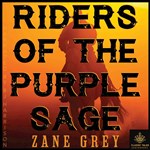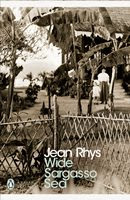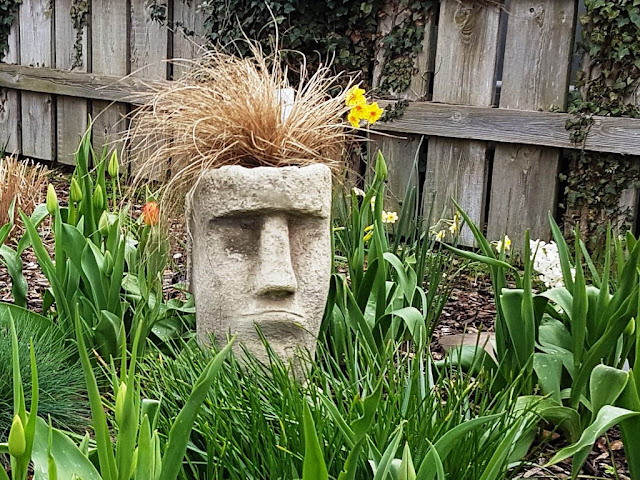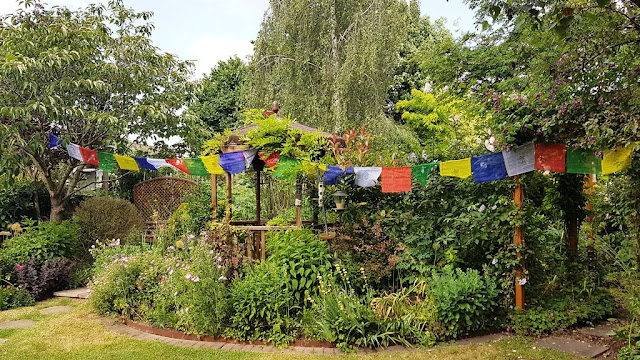Flowers for Algernon
by Daniel Keyes
narrated by Adam Sims
"Charlie Gordon, a floor sweeper born with an unusually low IQ, has been chosen as the perfect subject for an experimental surgery that doctors hope will increase his intelligence - a procedure that has been highly successful when tested on a lab mouse named Algernon."An unexpected gem from the Classics list, which I enjoyed even though it was a 20th century novel (I don't usually get on with modern fiction). At the start and possibly at the end I think that the printed book would have conveyed something more than the audio book through the spelling, given that it was written as a series of diary entries by the experimental subject, but the narration helped.
Nice Work
by David Lodge
"When Vic Wilcox (MD of Pringle's engineering works) meets English lecturer Dr Robyn Penrose, sparks fly as their lifestyles and ideologies collide head on. What, after all, are they supposed to learn from each other? But in time both parties make some surprising discoveries about each other's worlds - and about themselves."A traditional sort of novel, with a story that introduces real people that I could believe existed who didn't follow some fairy tale narrative. It had a beginning, middle and end and I didn't know at any point what would happen next. In fact the author suspected when I would start guessing, and anticipated this by starting a couple of the chapters with a paragraph telling me what would happen next before it happened, which took away all the 'will they, won't they' and allowed me to just enjoy how things went. Not thrilling, not exciting, rather ordinary, but I really liked it quite a lot.
The Bodhisattva Ideal: Wisdom and Compassion in Buddhism
by Sangharakshita
"The image of the Bodhisattva, one who wishes to gain Enlightenment for the sake of all beings, lies at the heart of much of Indian, Tibetan and Chinese Buddhism. Sustained by a deep understanding gained through meditation and reflection, the Bodhisattva is able to work tirelessly for the benefit of all."This is what we've been studying in my group on Mondays, and as for so many of the course books it's based on talks, in this case delivered in 1969 and 1984. The fact that I got through it is testament to the distance that I've covered since starting this Buddhist lark, and the help I've received from others in the study group. Philosophy and the science of the mind do not fall comfortably within the scope of my particular intellectual talents. But I've come so far that parts of the book explained things I hadn't realised I was confused about, such as the timeline of Buddhist 'sects' from Theravada to Mahayana to Vajrayana and Tantra. That knowledge isn't going to change my world, but I often compare Buddhism to a huge jigsaw where I have assembled a few clusters, and this adds a few pieces around the edges.
by Zane Grey
narrated by B. J. Harrison
"The story of Lassiter, a gunslinging avenger in black, who shows up in a remote Utah town just in time to save the young and beautiful rancher Jane Withersteen from having to marry a Mormon elder against her will."This was an unexpected gem, read particularly well by my regular audio book narrator probably because it's set in Utah, which I think is where he lives. He's less successful when reading books set in 18th century England or France, for example, but we will insist on giving names to our aristocrats and towns that aren't pronounced as they are spelled. The Mormons don't come out well from the book but everyone else is brave and honourable and generous and it has a happy ending, so that's good.
The Wide Sargasso Sea
by Jean Rhys
"Born into an oppressive colonialist society, Creole heiress Antoinette Cosway meets a young Englishman who is drawn to her innocent sensuality and beauty. After their marriage, disturbing rumours begin to circulate, poisoning her husband against her. Caught between his demands and her own precarious sense of belonging, Antoinette is driven towards madness."I've been looking out for this book for ages because I was aware it was written as a prequel to our beloved Jane Eyre, which I haven't read for ages and don't seem to have on my bookshelves, so I may borrow a copy from the library to remind myself how good it is (or isn't). I think that I was expecting this one to be as good as JE, but of course it wasn't. It gave me a tiny bit of insight into emancipation in the West Indies, which I admit to knowing nothing about before reading the book.
The History of my Going for Refuge
by Snagharakshita
"Sangharakshita's autobiographical account of how his radical understanding that the monastic life-style and the spiritual life are not identical deepened through his encounters with Burmese monks, Tibetan lamas, and the new Buddhists of India."An esoteric work that interests me because of my study of the founder of the Buddhist movement that I'm involved with. As ever, it's a (barely) edited transcript of a talk that he gave in 1988 on the 20th anniversary of the movement's existence, and fleshed out a few helpful aspects of his thinking for me.
The Driver's Seat
by Muriel Spark
"Lise is thin, neither good-looking nor bad-looking. One day she walks out of her office, acquires a gaudy new outfit, adopts a girlier tone of voice, and heads to the airport to fly south. So begins an unnerving journey into the darker recesses of human nature."A short novel describing about 2 days of this woman's life, and unnerving doesn't start to describe it. The character has crossed over into insanity, and I can't imagine why the author chose to write the story or what she meant by it. I suppose stories don't have to have a reason, and maybe what she describes is true to life, but I have no experience of this kind of madness and I couldn't relate to anybody she described.
On Beauty
by Zadie Smith
"Howard Belsey, a Rembrandt scholar who doesn't like Rembrandt, is an Englishman abroad and a long-suffering professor at Wellington, a liberal New England arts college. He has been married for thirty years to Kiki, an American woman who no longer resembles the sexy activist she once was."I wasn't expecting to, but I liked this book quite a lot. It made me understand just a little more about race and class, and what that can mean in America and England. I was reading it during my recent retreat when one of the participants told me how she felt as a mixed race person who had been the subject of a physical racial attack when she was 16, and shed some light on the difference it can make to have a brown face. I can't really experience what that's like, but I can be aware that it's there, all the time, in her life and in the lives of many others.
Light Years
by James Salter
narrated by Mark Boyett
"The story of Nedra and Viri, whose favored life is centered around dinners, ingenious games with their children, enviable friends, and near-perfect days passed skating on a frozen river or sunning on the beach. But fine cracks that are spreading through their marriage, flaws that will eventually mar the lovely picture beyond repair."I kept expecting something dramatic to happen, something that would elevate this story to match its 'Classic' status, but nothing ever did. I learned about the two people, their children, their friends, their lovers, their divorce and subsequent marriange and death. But there was nothing to relate to and no arc to follow; they are described but I never cared about either of them or what might happen.












